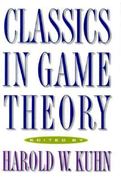Question
(b) A firm and its union bargain as follows. First the union makes a wage demand, w. The firm observes w and chooses whether or
(b) A firm and its union bargain as follows. First the union makes a wage demand, w. The
firm observes w and chooses whether or not to accept it. If the firm accepts, then it
chooses a level of employment, L. If it does not accept, then L is zero. The firm's payoff
is F = 6L1/2 wL, and the union's payoff is u = (w B) L, where B> 0. (Assume that
if the firm is indifferent between accepting and not-accepting, it will choose to accept.)
Derive the unique subgame perfect equilibrium outcome. (6 marks)
(c) Two countries, A and B, independently select trade policies. If they both select low
tariffs, they each get a payoff of 5. If A selects high tariffs and B selects low tariffs, A
gets 6 and B gets 3, while if A selects low tariffs and B selects high tariffs, A gets 3
and B gets 6. If they both select high tariffs, they both get 4.
Derive conditions on the period discount factor for which an equilibrium featuring low
tariffs in every period can be sustained under infinite repetition by the threat of
indefinite reversion to high tariffs in response to any deviation from low tariffs (grim
trigger strategy). Explain. (6 marks)
Step by Step Solution
There are 3 Steps involved in it
Step: 1

Get Instant Access to Expert-Tailored Solutions
See step-by-step solutions with expert insights and AI powered tools for academic success
Step: 2

Step: 3

Ace Your Homework with AI
Get the answers you need in no time with our AI-driven, step-by-step assistance
Get Started


